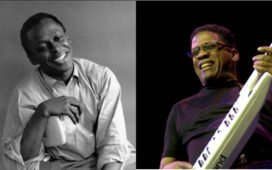When first we take an interest in movies, we must figure out our own method of deciding what to watch next. The central factor may be box office performance, the presence of a favorite performer, adherence to a favorite genre, or the use of a familiar story from other media. Such paths through cinema can lead to entertaining viewing experiences, no doubt, but it’s safe to say that very few movie-lovers become bona fide cinephiles without eventually switching their allegiance to directors. In eras past, a properly organized video store — that is, one whose tapes, Laserdiscs, or DVDs were ordered alphabetically, by the director’s name — could provide a gateway. (Mine was Scarecrow Video.) Today’s budding cinephiles have YouTube channels like The House of Tabula.
Formerly known as The Cinema Cartography (and before that as Channel Criswell), The House of Tabula has produced many video essays on film previously featured on Open Culture. More than a few closely examine particular directors: Andrei Tarkovsky, Stanley Kubrick, David Lynch, and Quentin Tarantino, to name just four that appear in The House of Tabula’s new three-and-a-half-hour video “The Masters of Cinema.”
A journey through the evolution of film as reflected in the work of 78 different directors, it covers Tarkovsky, Kubrick, Lynch, and Tarantino in its later chapters on “the Modern Masters” and “the New School.” The earlier chapters examine pictures by everyone from Georges Méliès, Sergei Eisenstein, D.W. Griffith, and Charlie Chaplin to Alfred Hitchcock, Akira Kurosawa, Federico Fellini, and Orson Welles.
This view of cinema subscribes to “auteur theory,” which holds the director to be the guiding artistic intelligence, or “author,” of a film. Most of us accept at least a version of this idea relatively early in our journey into cinephilia, and soon thereafter encounter the varieties of objection to it that have been lodged for decades and decades. Some directors may operate their own cameras, but most don’t; a few directors act in their own movies, but the vast majority wouldn’t even consider it (which is probably all to the good). With some notable exceptions, cinema is an intensely collaborative art, but as House of Tabula co-creator Lewis Bond puts it, the director is still the “voice” of a film. Together, the voices of the auteur filmmakers like the ones featured in this video define the language of cinema, or perhaps the language that is cinema — one that every cinephile spends a lifetime learning to understand.
Related Content:
The 30 Greatest Films Ever Made: A Video Essay
480 Filmmakers Reveal the 100 Greatest Movies in the World
Martin Scorsese Makes a List of 85 Films Every Aspiring Filmmaker Needs to See
Based in Seoul, Colin Marshall writes and broadcasts on cities, language, and culture. His projects include the Substack newsletter Books on Cities and the book The Stateless City: a Walk through 21st-Century Los Angeles. Follow him on the social network formerly known as Twitter at @colinmarshall.















